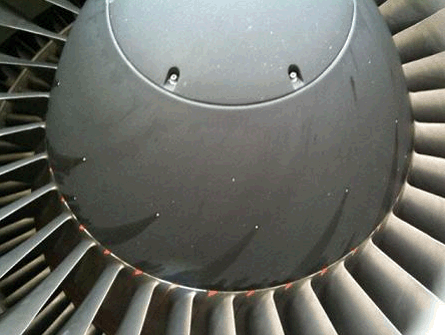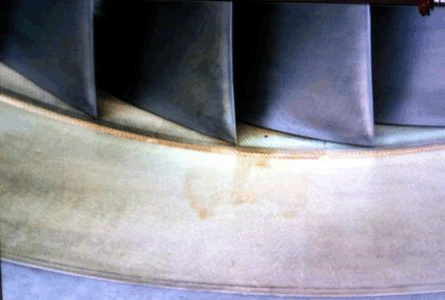Air Berlin is facing multiple investigations into problems with one of its Airbus A330-200s, which resulted in the German airline conducting a passenger flight with an engine showing clear signs of oil leakage.
The aircraft, registration D-ALPD, suffered multiple oil contamination events around 8-9 April. On the third of these, flight AB7152, between Munich and Bangkok, the crew noticed a strong smell of oil shortly after take-off.
According to information obtained, the captain contacted the airline's operations centre and suggested a return to Munich, as the aircraft would have to be thoroughly inspected before its next flight. Sources say the crew was advised to continue to its destination.
On arrival at Bangkok, Air Berlin's designated maintenance contractor, Thai Airways, inspected the aircraft and found evidence of oil leaks at several locations on the A330's right-hand Pratt & Whitney 4168A engine.
 |
|---|
© Tim van Beveren |
Maintenance documents and photographs obtained by Flight International say that oil leaks were located on "the inlet cones, the anti-ice vent holes, the fan blades and bleed vent areas" as well as "puddles of oil" found at the bottom of the fan case.
These are "consistent with the failure of the No 1 carbon bearing seal" on the engine. The Airbus/Pratt & Whitney troubleshooting manual clearly states that in such situations the engine must be replaced before its repair.
Nonetheless, following inspection by Air Berlin Technik, which discovered what it describes as "a slight oil leak" on the engine, the aircraft was released back into service and conducted a revenue flight back to Düsseldorf as flight AB7151. There the engine was exchanged as a precaution.
 |
|---|
© Tim van Beveren |
However, three separate inquiries have been launched into the incident and a related fume event on the same aircraft the day before on a flight to Mombasa, Kenya.
The BFU, the German air accident investigation branch, confirms it is probing the fume incident, although it says the continued use of the engine is no longer a subject of investigation.
Investigations have also been launched by the Luftfahrtbundesamt, the German civil aviation authority, and the employer's mutual insurance association. A report filed with the insurer confirms that "a fume event" had been encountered.
It further says: "The strong oil smell propagated through the entire aircraft [during climb for about 20min - before approach to Bangkok about 10min]". It also points out that the entire crew encountered "nausea", "illness" and "headaches".
The report also suggests that "contamination of the crew and the aircraft with the neurotoxin TCP, tricresylphosphate, has to be considered".
According to the German government, in a ruling published in September 2010, the aircraft operator is required to inform passengers in the event of a fume event.
Air Berlin declined to comment.
Source: Flight International























